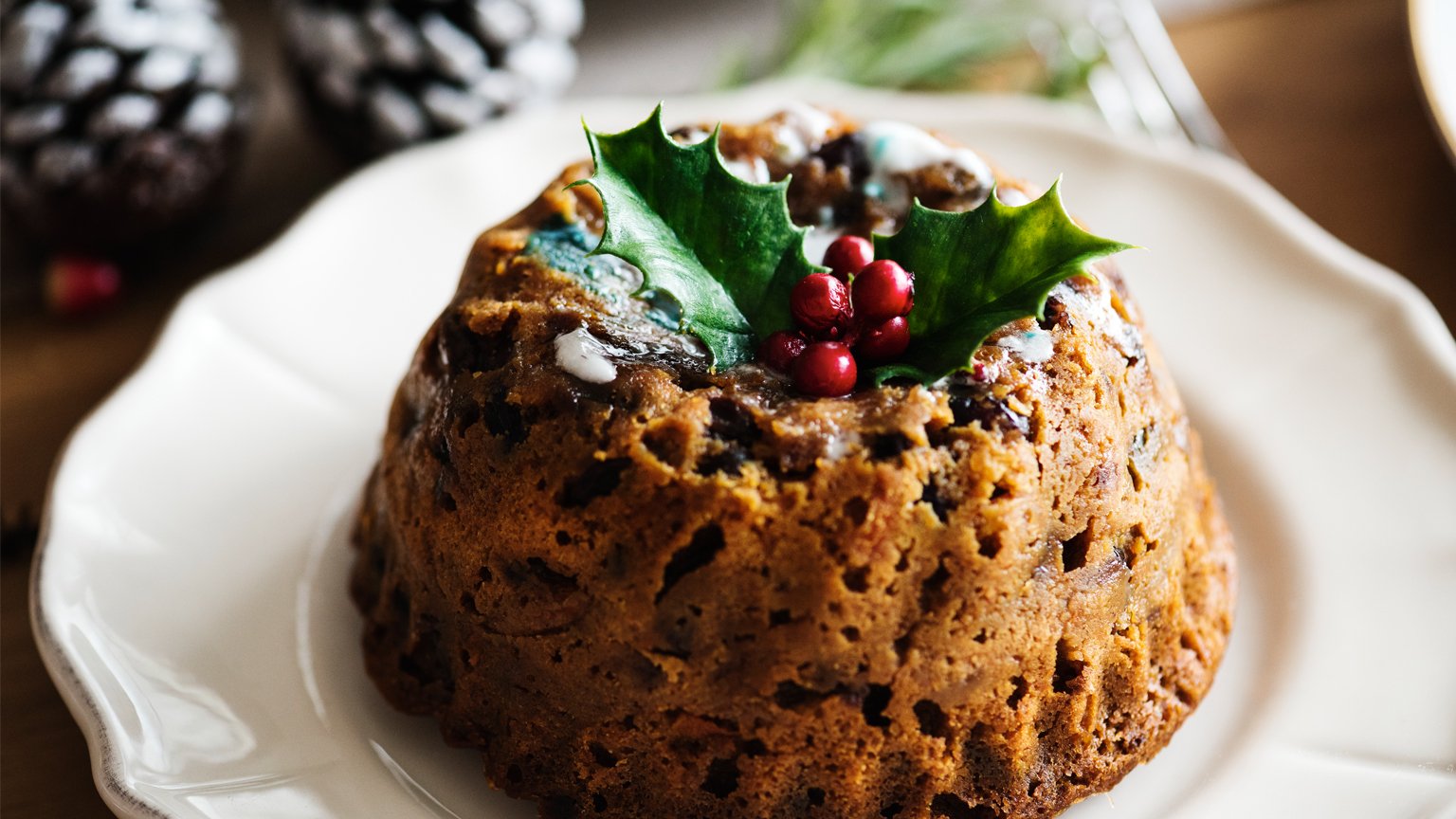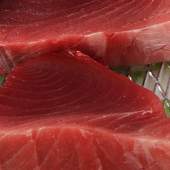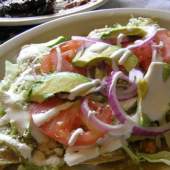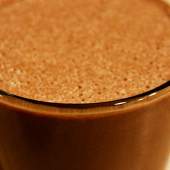Fruitcake

“Oh my, it’s fruitcake weather.”
– Truman Capote, A Christmas Memory
“There’s only one fruitcake in the world, and people keep sending it to each other.”
– Johnny Carson
“Nobody in the United States has ever bought a fruitcake for himself.”
– Calvin Trillin
There doesn’t seem to be much middle ground when it comes to the ubiquitous Yuletide fruitcake – people either love it beyond all reason or loathe it with the heat of a thousand fiery suns. How did this controversial dessert/”it’s-the-thought-that-counts” holiday gift/flying projectile become synonymous with Christmas, and how long has it been in existence?
To answer the first question: sadly, nobody knows for sure. But it is thought that the Victorians are to blame, as they liked to make and serve fruitcake all year round, including at birthday and anniversary celebrations. (Case in point: contestants on The Great British Baking Show tackled a quintessential Victorian fruitcake that sported a tennis court on top.) Perhaps the idea of holiday fruitcake is connected with plum pudding, which often incorporated other fruits and was most certainly a Christmas mainstay.
To answer the second question: fruitcake, in some form or other, has been around for a very long time – since the ancient Romans, to be exact. It didn’t actually start out as a cake, but as something that today we might classify as a (massively) oversized energy bar…it was made from seeds, nuts, dried fruits, and barley mash, laced heavily with wine and honey before being formed into a cake-shaped object. (Yum!) According to the New York Times, the Romans called this creation a satura, a word that is also the root of satire¸ meaning, as it does, “a mix of many ingredients sour and sweet.”
By the Middle Ages, bakers began to jettison the seeds and mash in favor of fruits, and strove to create something that is much closer to what we know as a cake. But it appears that they kept the alcohol as part of the recipe – perhaps not only for its taste, but also for its role as a preservative. Fruitcake then became a valuable foodstuff, as it got families through a long winter when fresh fruit was unattainable.
So how did fruitcake go from a hot commodity to the running joke that it is today? (Not to everyone, obviously – Martha Stewart, for one, touts several kinds of fruitcake recipes.) Possibly it’s because it began to be manufactured in bulk, and the cake-to-candied-fruit quotient was thrown off balance. Homemade is always better, but this seems to be especially true of fruitcake. Truman Capote’s aunt would know – for a number of years, she was (fun fact!) “The Fruitcake Lady,” “telling it like it is” to advice seekers on The Tonight Show.
Other fun fruitcake facts:
- Generations of British royalty (Elizabeth and Philip, Charles and Diana, William and Catherine) all liked fruitcake enough to incorporate one as a wedding cake (Victoria and Albert had a plum cake, which was essentially the same thing). Slices of each were later auctioned for thousands of dollars (and were probably still edible). Also, Princess Grace of Monaco (the former film star Grace Kelly) was said to be a fan, along with U.S. presidents Grover Cleveland and Franklin Delano Roosevelt.
- An old British tradition dictates that single wedding guests will dream of the person they will later marry if they sleep with a slice of the wedding cake (often a fruitcake) under their pillows.
- The density of most fruitcakes is equal to that of mahogany. Due to that, they are eminently shippable, and probably indestructible, which is why they make effective doorstops.
- Fruitcake in an airtight container and steeped in the right amount of alcohol will probably last for at least 25 years. You might not want to wait that long to re-gift it, though.
- In 1969, fruitcake was launched into space as part of Apollo 11, the mission in which Neil Armstrong took that “one small step for man, one giant leap for mankind” on the surface of the moon. No word on whether he was thinking of fruitcake when he said it (we’re guessing not). The recipe is available.
- A reporter from The Village Voice, having conducted a taste test for an article on fruitcake, concluded that the best were (are?) baked by monks. It is probably not a coincidence that their cakes contained the highest percentage of alcohol.
- Due to their prodigious fruitcake production, two American towns – Corsicana, Texas and Claxton, Georgia – have both claimed the title of “Fruitcake Capital of the World.” Corsicana even displays that slogan on the town water tower. Fruitcake by mail order has been a thing since 1913, and both of these towns have been instrumental in its distribution.
If you really can’t bring yourself to eat fruitcake but still want to interact with it, and will find yourself in the vicinity of Manitou Springs, Colorado on January 26, you can take part in the town’s annual Great Fruitcake Toss – admission is a non-perishable food item for the town’s food bank, and fruitcakes are available to rent for $1. There is a bakeoff and a costume contest, too, plus prizes for creativity in fruitcake-tossing (and catching) technique. You can toss by hand, or take advantage of the event’s unique three-man mechanical fruitcake slingshot.
How does fruitcake hold up during this treatment? Very well, of course! Because, as author and satirist Russell Baker once said, “Fruitcake is forever.”





